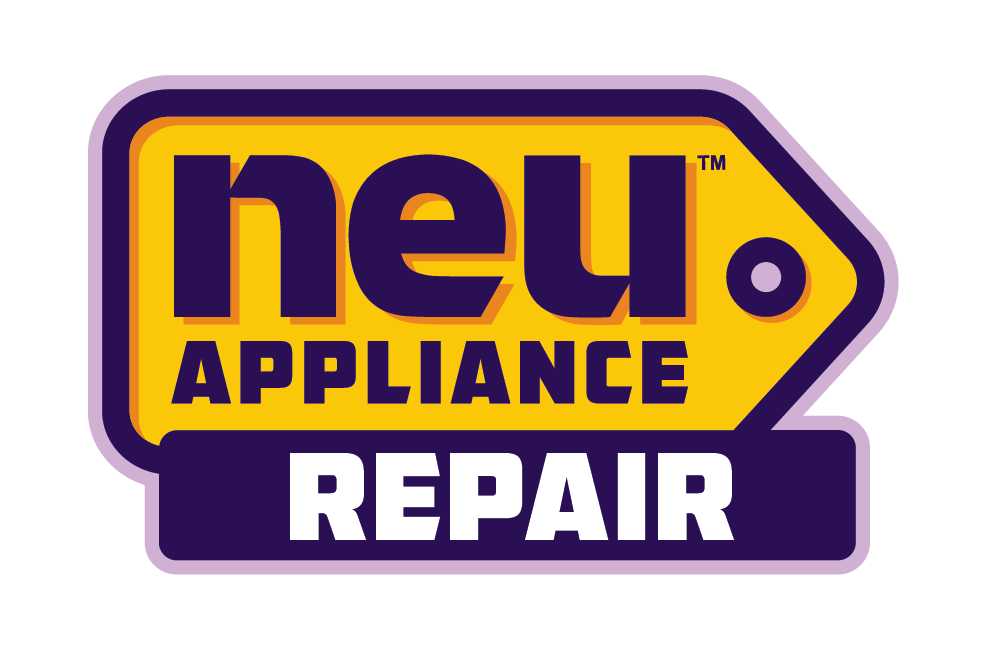The Ultimate Guide to GE Washer Repair: Common Issues & Expert Solutions
Owning a GE washing machine can be a valuable asset for your household and family. They are reliable and affordable machines that continue to deliver. But when they go down, it can bring aspects of your life to a screeching halt. Lucky for you, one hidden perk that the GE's have is that they are also very repair-friendly. Let's take a quick look at some of the most common problems we face as professional and experienced appliance repair technicians operating in Austin, Texas.
Washer Won't Start or Turn On
If your GE washer is completely unresponsive, check these simple things first.
-
✓
Power Cord: Verify the machine's power cord is securely plugged into the wall outlet.
-
✓
Circuit Breaker: A tripped circuit breaker can cut power. Check your home's breaker box and reset any switches that are in the "off" position.
-
✓
Lid Latch: The machine will not run if the lid or door is not fully closed and latched. Give the lid a firm push to ensure the latch engages.
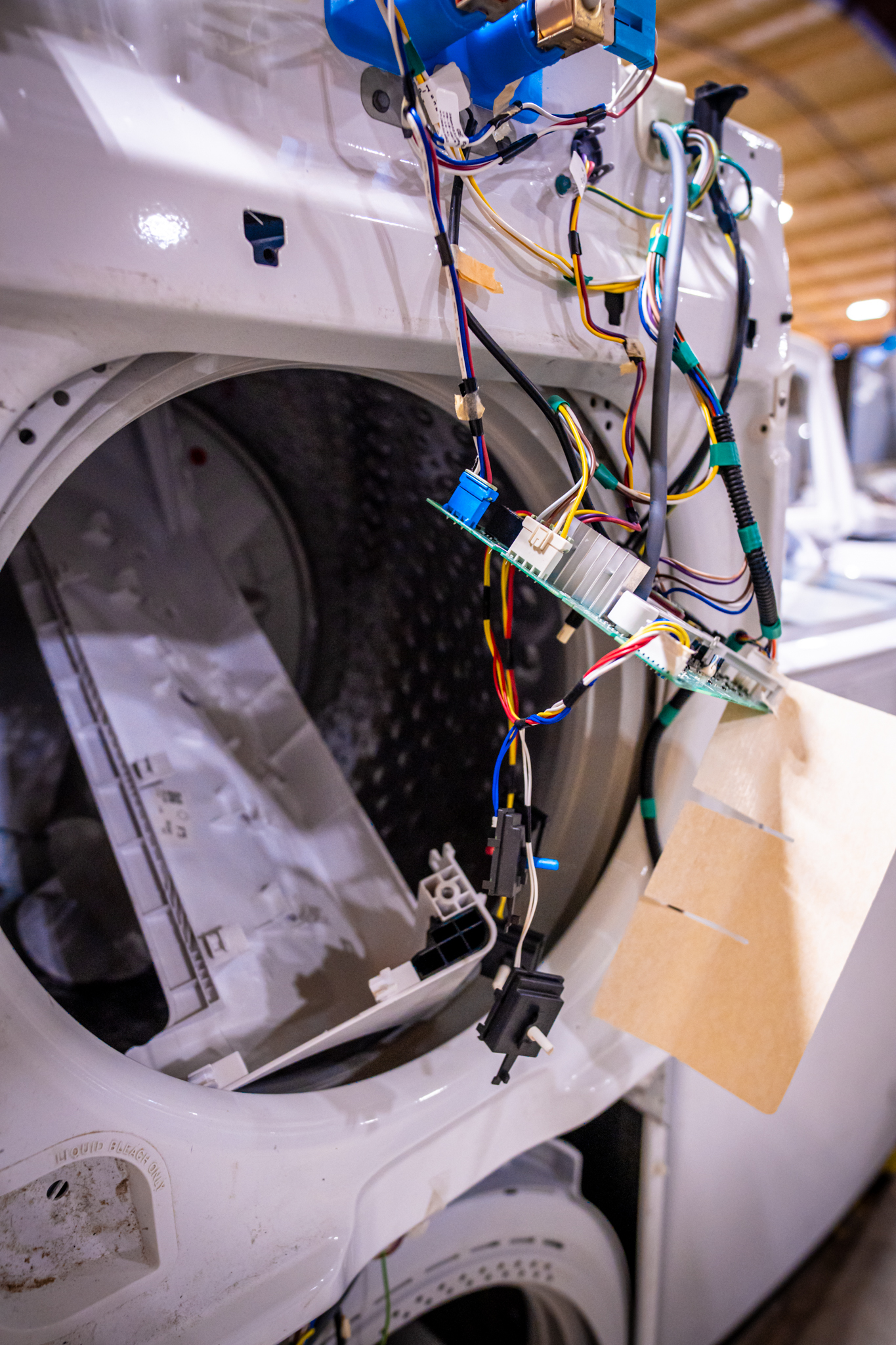
Washing Machine Isn't Draining
A washer full of water is a common issue, often caused by a blockage.
-
✓
Drain Hose: Check the drain hose at the back of the washer. Look for any kinks, twists, or clogs that could be preventing water from exiting the machine.
-
✓
Drain Pump Filter: Most GE washers have a small, accessible filter at the bottom. This filter can become clogged with lint or small items. Place a towel down and carefully remove the filter to clean it.
-
✓
When to Call Us: If the issue persists, the problem may be a failed drain pump or a deep clog in the plumbing. These issues require professional attention.
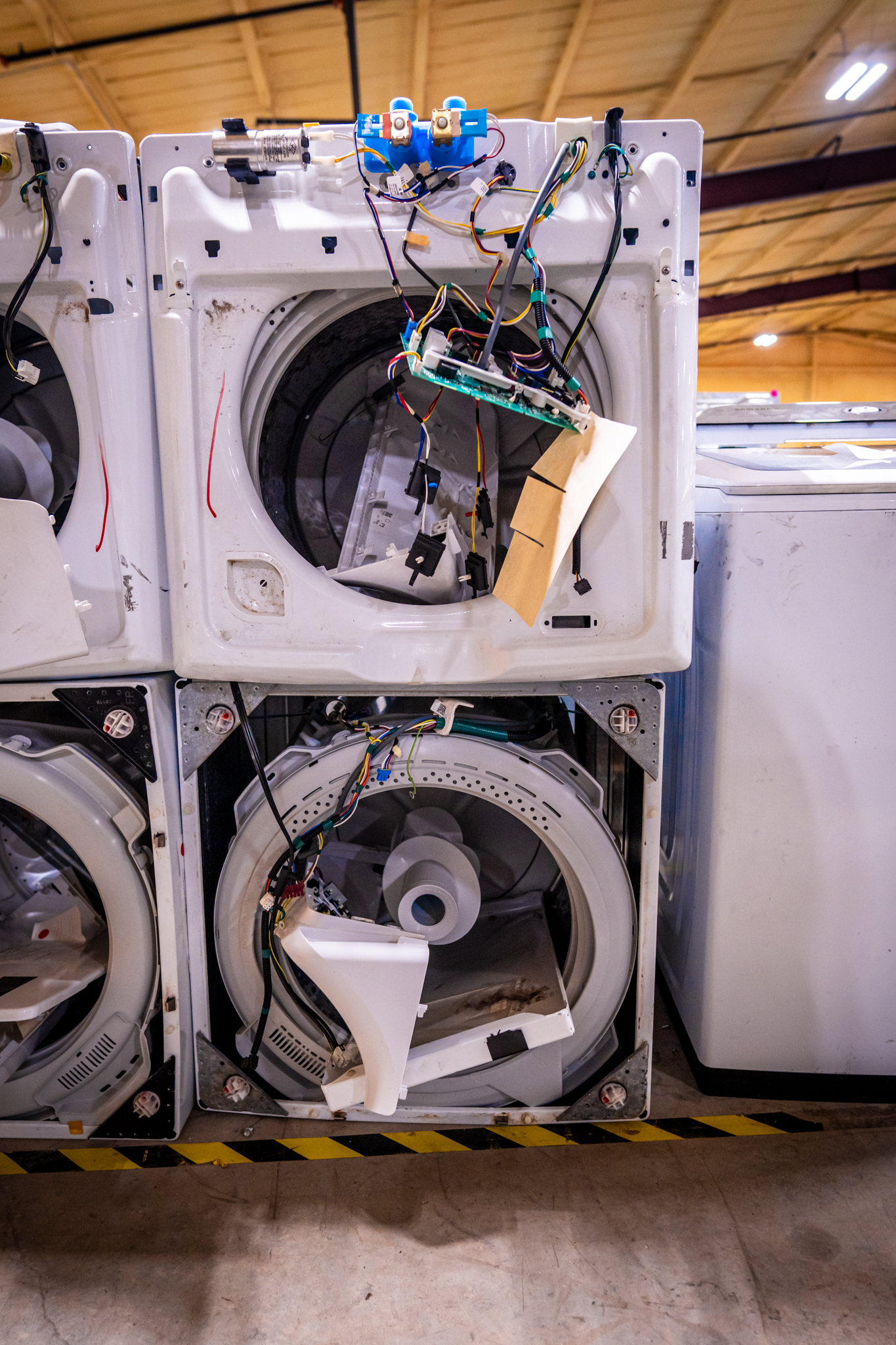
The Washer Is Making Loud Noises
Unusual noises from a washing machine indicate a problem that should be addressed promptly.
-
✓
Rattling or Clunking: This noise is typically caused by a loose item, like a coin or a button, rattling around in the drum. Stop the machine immediately and inspect the drum and the surrounding area.
-
✓
Grinding or Squealing: These sounds often indicate a worn-out motor or faulty bearings. This is a complex repair that requires a qualified technician to avoid further damage.
-
✓
Excessive Vibrating: If the machine is shaking violently, it is likely unbalanced. Use a level tool to check if the machine is level, and adjust the feet on the bottom to stabilize it. An unevenly distributed load can also cause this problem.
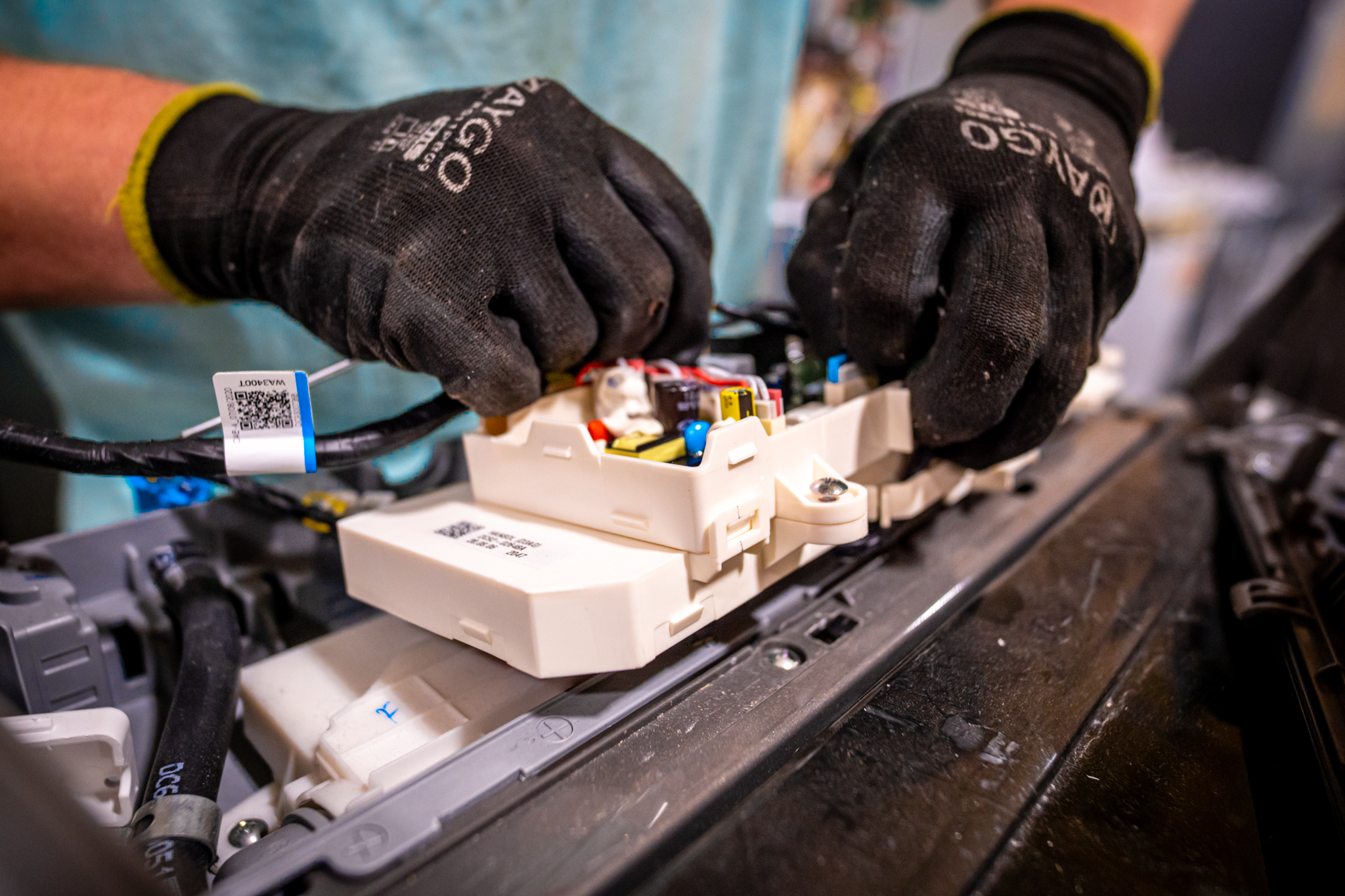
Washer Is Leaking Water
A leak can be a sign of a few different issues, some of which are easy to fix.
-
✓
Water Hoses: Inspect the water supply hoses for cracks, loose connections, or corrosion. Damaged hoses should be replaced.
-
✓
Overloading: Filling the washer past its capacity can cause water to slosh out during the cycle. Always run smaller loads to prevent this.
-
✓
Door Seal: On front-load models, check the rubber gasket around the door for tears or mold. Clean the seal regularly to prevent buildup.
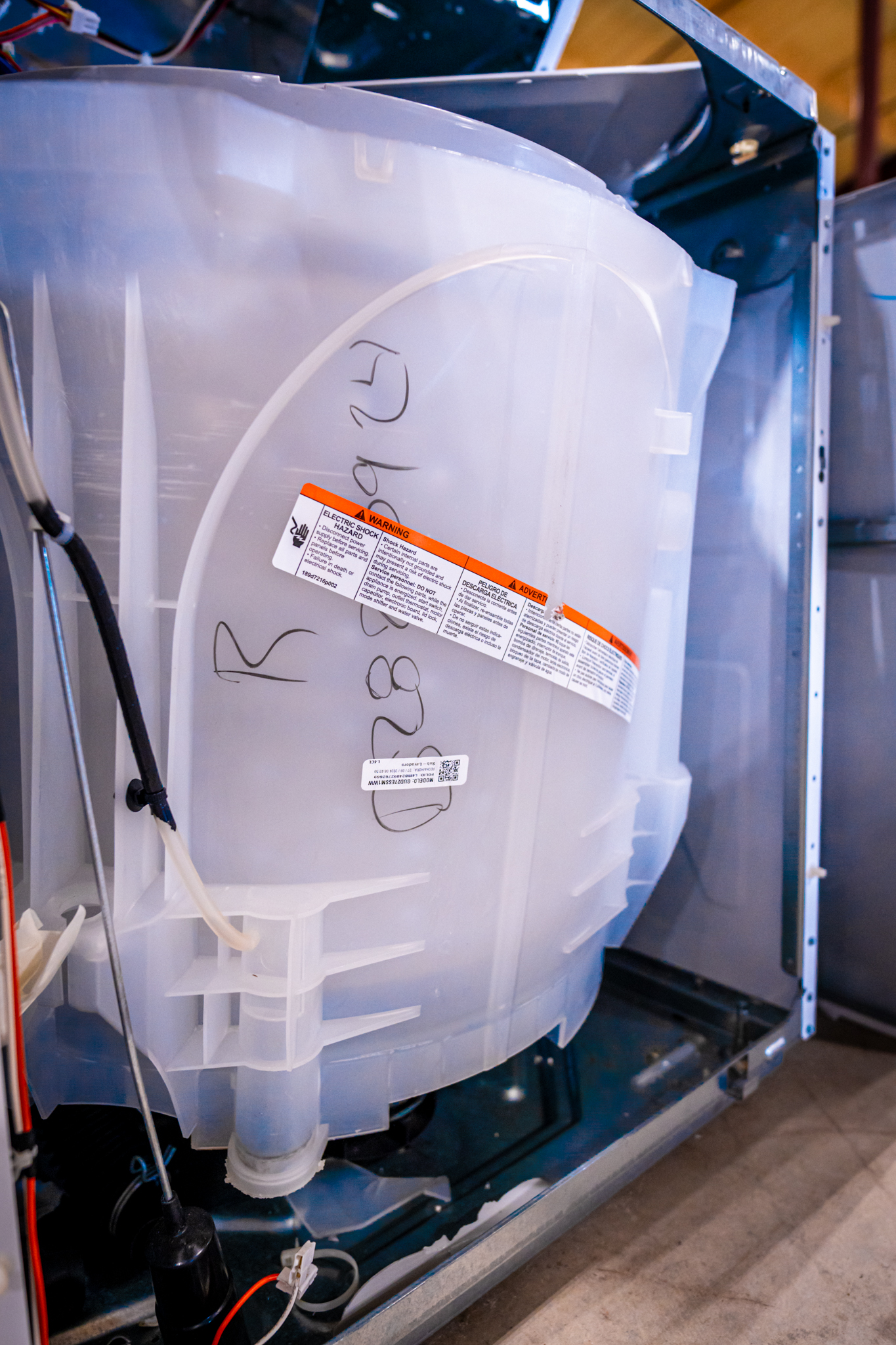
Spin Cycle Is Not Working
If your clothes are coming out soaking wet, the spin cycle is the problem.
-
✓
Lid Switch: The lid latch or switch is a safety component. If it's broken, the machine will not spin.
-
✓
Unbalanced Load: An unbalanced load will cause the washer to stop the spin cycle. Redistribute the clothes and restart the cycle.
-
✓
Drive Belt: A squealing noise during the spin cycle suggests a worn or broken drive belt. This is a technical repair best handled by a professional.
Expert Help Is Always Available
Troubleshooting your GE washer can save you time and money, but some problems are too complex for a DIY fix. Whether you're in Austin or the surrounding areas, our certified technicians have the experience to diagnose and repair your machine quickly.
For more information, please see our related articles:
GE Washer Not Draining? Troubleshooting & Repair Solutions for a Clogged Drain Pump
Is Your GE Washing Machine Making Loud Noises? A Guide to Identifying the Problem
If your washer is still not working or if you prefer to have a professional handle the issue, contact us today. We're here to help.
